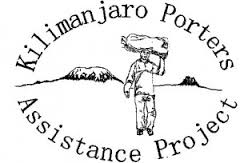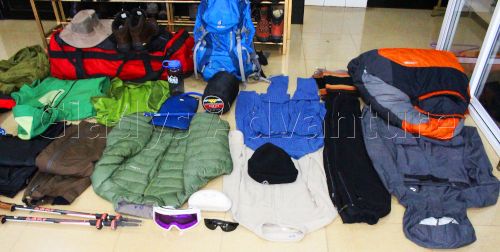Gladys Adventure
Private Mt Kilimanjaro Climbs
Gladys Adventure offers both private climbs and open group climbs. A private climb can begin any day of the year, using any route with any number of participants. Each private group has the option of keeping the group closed or allowing others to join. We will never add people to a private climb without consent of the group. In planning your trip, you can count on your date being available unless we post a notice on this page. At the present, all dates are available for climbs.
Kilimanjaro Private Climb Prices
All climb packages include 2 nights hotel in Moshi with B & B plan. Our primary hotel is Kilimanjaro Wonders Hotel which we consider a high 3 star hotel. If we cannot get availability there we use Salinero Kilimanjaro Hotel. We can offer alternative accommodations or offer you a price without any Moshi accommodations included. Please ask us if you want to consider other options. If you book your own accommodations it is far better if the accommodations are in Moshi rather than Arusha.
A Word to the Wise:
The government has announced that it will be raising park fees for Kilimanjaro National Park. Once we know full details, we will have to examine our Kilimanjaro climbing package fees to see if these need to be increased. It is our policy to honor prices once a deposit has been made. While we are not a company that markets our tours with "calls to action" such as "hurry", "act now", "last chance", etc., this is an instance where, if you are strongly considering a Mt Kilimanjaro trek, it may be to your advantage to make a deposit on the trek as soon as possible.
- Machame Route 6 Days
1 climber 2 climbers 3 climbers 4 climbers 5 climbers 6 climbers 7 climbers 8 climbers 9 climbers 10 + climbers $2507 $2060 $1979 $1893 $1865 $1855 $1853 $1845 $1842 $1824 - Machame 7 Days
1 climber 2 climbers 3 climbers 4 climbers 5 climbers 6 climbers 7 climbers 8 climbers 9 climbers 10 + climbers $2815 $2328 $2249 $2168 $2128 $2113 $2104 $2110 $2102 $2087
- Lemosho 7 Days
1 climber 2 climbers 3 climbers 4 climbers 5 climbers 6 climbers 7 climbers 8 climbers 9 climbers 10 + climbers $2942 $2411 $2340 $2277 $2237 $2215 $2202 $2204 $2191 $2174
- Lemosho 8 Days
1 climber 2 climbers 3 climbers 4 climbers 5 climbers 6 climbers 7 climbers 8 climbers 9 climbers 10 + climbers $3224 $2665 $2621 $2598 $2579 $2556 $2536 $2538 $2519 $2491 - Lemosho 9 Days
1 climber 2 climbers 3 climbers 4 climbers 5 climbers 6 climbers 7 climbers 8 climbers 9 climbers 10 + climbers $3504 $2975 $2935 $2909 $2870 $2843 $2824 $2819 $2800 $2774
- Northern Circuit (Grand Traverse) 8 Days
1 climber 2 climbers 3 climbers 4 climbers 5 climbers 6 climbers 7 climbers 8 climbers 9 climbers 10 + climbers $3224 $2665 $2621 $2598 $2579 $2556 $2536 $2538 $2519 $2491 - Northern Circuit (Grand Traverse) 9 Days
1 climber 2 climbers 3 climbers 4 climbers 5 climbers 6 climbers 7 climbers 8 climbers 9 climbers 10 + climbers $3504 $2975 $2935 $2909 $2870 $2843 $2824 $2819 $2800 $2774
- Rongai 6 days
1 climber 2 climbers 3 climbers 4 climbers 5 climbers 6 climbers 7 climbers 8 climbers 9 climbers 10 + climbers $2634 $2143 $2070 $2002 $1974 $1957 $1921 $1925 $1915 $1898 - Rongai 7 Days
1 climber 2 climbers 3 climbers 4 climbers 5 climbers 6 climbers 7 climbers 8 climbers 9 climbers 10 + climbers $2942 $2411 $2340 $2277 $2237 $2215 $2202 $2204 $2191 $2174
- Marangu 5 Days
1 climber 2 climbers 3 climbers 4 climbers 5 climbers 6 climbers 7 climbers 8 climbers 9 climbers 10 + climbers $2118 $1720 $1665 $1616 $1586 $1570 $1546 $1552 $1547 $1533 - Marangu 6 Days
1 climber 2 climbers 3 climbers 4 climbers 5 climbers 6 climbers 7 climbers 8 climbers 9 climbers 10 + climbers $2481 $2024 $1963 $1907 $1871 $1854 $1825 $1830 $1824 $1808
- Umbwe 6 Days
1 climber 2 climbers 3 climbers 4 climbers 5 climbers 6 climbers 7 climbers 8 climbers 9 climbers 10 + climbers $2507 $2060 $1979 $1893 $1865 $1855 $1853 $1845 $1842 $1824 - Umbwe 7 Days
1 climber 2 climbers 3 climbers 4 climbers 5 climbers 6 climbers 7 climbers 8 climbers 9 climbers 10 + climbers $2815 $2328 $2249 $2168 $2128 $2113 $2104 $2110 $2102 $2087
-
Comfort add-on options:
private tent -- $100/trek
luxury mattress (3" thick and 2.5 ft wide compared to 1.5" thick and 2 ft wide) -- $35/climber
higher profile tent --$40/tent
camp cot -- $150/cot (the higher profile tent is required to accommodate the cots, so it must be added also)
hot water bottle (to warm sleeping bag) -- free upon request
day pack porter -- $10/day
Gamow Bag -- $300/trek
post climb massage -- $20/half hour
post trek laundry service -- $10/kg (same day service)
Be aware that some add ons may result in more porters used for the trek. Salaries for added porters are included in the price but not tips. Regarding private tents: Where there is an odd number of climbers, there is no additional charge for the one climber staying single. If there is an even number of climbers and one requests a single tent, only one single tent charge is added although two climbers will end up sleeping single.
- We can add an overnight at Crater Camp to any route except Marangu Route. A special permit is required for crater camp, additional pay for each staff member who spends overnight in the crater and also private toilet tent(s) are required for the staff.
-
Crater Camp solo climb 2 climbers 3 climbers 4 climbers 5 climbers 6 climbers 7 climbers 8 climbers 9 climbers 10 + climbers Supplement
per person$606 $393 $318 $331 $321 $303 $291 $290 $282 $276
A 10% deposit will secure your climb. We accept payments via wire transfer directly into our bank account or online payment by credit/debit card (3% bank fee for this option). The remaining balance is not due until you arrive. We can accept additions to the groups up until the day before the trek starts.
If you need to cancel your trip we can offer refunds on any amount recoverable by Gladys Adventure less money transfer fees. Or your deposit can be applied to any future booking with Gladys Adventure up to one year after your original start date. Funds can also be transferred to another person who has booked through Gladys Adventure.
Full details about payment terms & conditions can be found here - Payment Terms & Conditions
For more information or to book a climb please contact us though our Info Request page.





 Before your climb we will go through a piece by piece equipment cheeck with
you. Any item that you need can be rented at our shop. Even though we have a large amount of rental equipment, if you know in advance that you will want to
rent some items let us know so we can reserve them for your dates.
As our client you will receive a 30% discount from our
listed prices.
Before your climb we will go through a piece by piece equipment cheeck with
you. Any item that you need can be rented at our shop. Even though we have a large amount of rental equipment, if you know in advance that you will want to
rent some items let us know so we can reserve them for your dates.
As our client you will receive a 30% discount from our
listed prices.